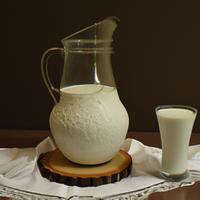
1 serving (240 grams) contains 120 calories, 8.0 grams of protein, 5.0 grams of fat, and 12.0 grams of carbohydrates.

Log this food in SnapCalorie

Nutrition Information
Calories |
120 | ||
|---|---|---|---|
% Daily Value* |
|||
| Total Fat | 5.0 g | 6% | |
| Saturated Fat | 3 g | 15% | |
| Polyunsaturated Fat | 0 g | ||
| Cholesterol | 20.0 mg | 6% | |
| Sodium | 115.0 mg | 5% | |
| Total Carbohydrates | 12 g | 4% | |
| Dietary Fiber | 0 g | 0% | |
| Sugars | 12 g | ||
| protein | 8.0 g | 16% | |
| Vitamin D | 100.0 mcg | 500% | |
| Calcium | 300 mg | 23% | |
| Iron | 0 mg | 0% | |
| Potassium | 400.0 mg | 8% | |
* Percent Daily Values are based on a 2,000 calorie diet. Your daily values may be higher or lower depending on your calorie needs.
Food Attributes
Source of Calories
About Lactoce free milk
Lactose-Free Milk is a dairy product specially designed for those with lactose intolerance, allowing them to enjoy the benefits of milk without digestive discomfort. Made by adding the enzyme lactase to regular cow’s milk, it effectively breaks down lactose, the naturally occurring sugar, into simpler sugars for easier digestion. This milk retains the creamy texture and nutritional profile of traditional milk, offering essential nutrients like calcium, vitamin D, and protein, which support bone health and muscle function. Originating from advancements in food science, lactose-free milk is popular across various cuisines, from Western breakfast staples to desserts and cooking. It is a healthy choice for individuals with lactose sensitivity, though calorie and fat content are comparable to regular milk, so portion control is important. Lactose-Free Milk is an excellent alternative for maintaining a balanced diet without sacrificing taste or nutrition.



